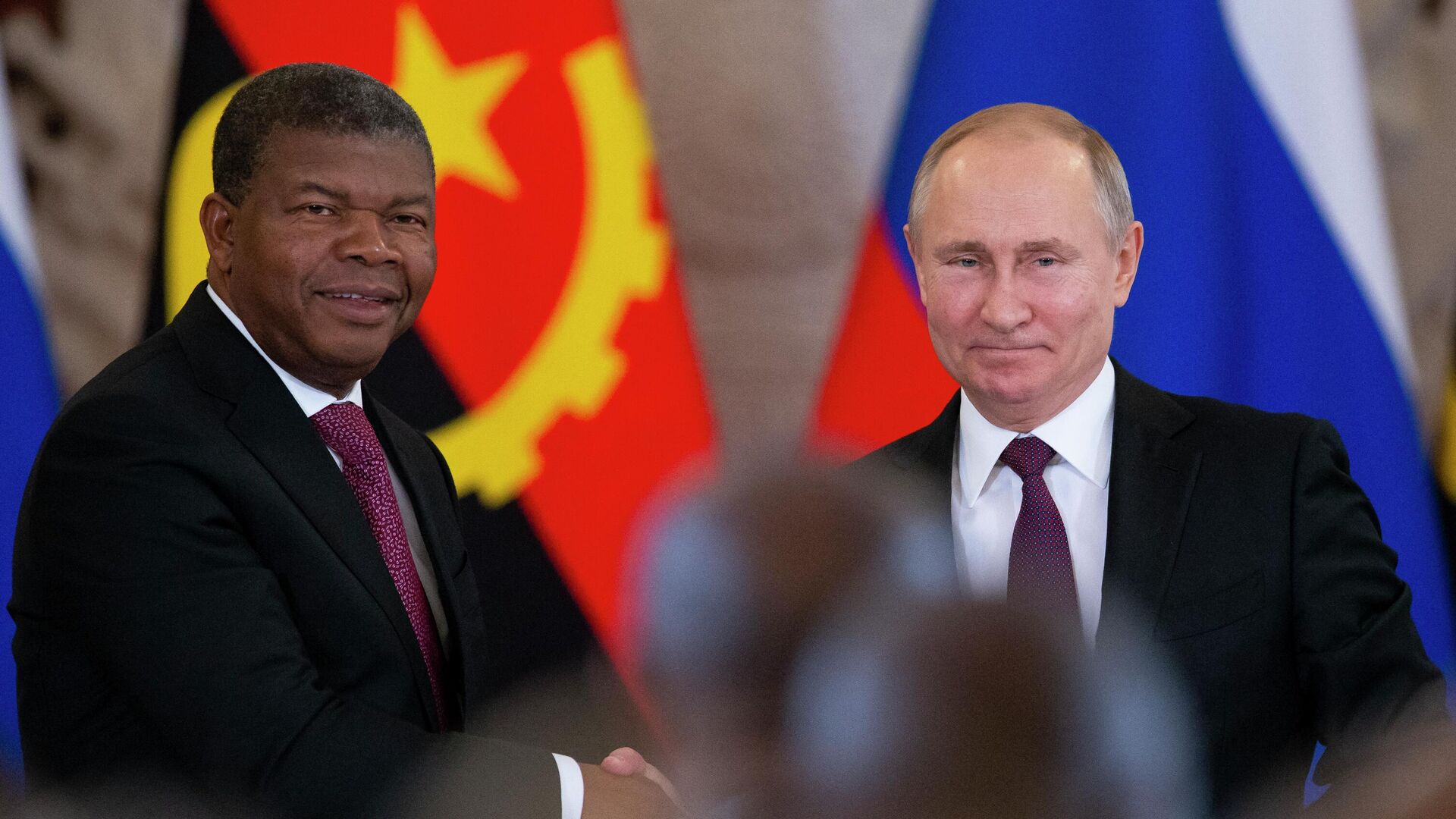Angola Ready to Bypass Sanctions to Preserve Cooperation With Moscow, Russian Ambassador Says

© ALEXANDER ZEMLIANICHENKO
Subscribe
MOSCOW (Sputnik) - Angola is prepared to search for ways to bypass anti-Russian sanctions, if necessary, in order to maintain cooperation with Russia, Russian Ambassador to Angola Vladimir Tararov said in an interview with Sputnik.
"I have talked with Angolan government officials, they all understand what is going on and have said: 'we will be looking for alternative paths and using them where necessary.' I believe this has grounds, real opportunities for sidestepping the sanctions," Tararov said.
The ambassador noted that the cooperation between Russia and Angola cannot be threatened by the sanctions imposed by the European Union on Moscow and that the Angolans are interested in developing bilateral economic cooperation.
EU member states and several countries outside the bloc have sanctioned Russia for starting a military operation in Ukraine, which was at the request of the breakaway Donetsk and Lugansk people's republics. The European Union is now drafting its sixth package of sanctions against Moscow, which, according to reports, may contain an oil embargo.
Angola lacks the infrastructure at the moment to replace Russia as a supplier of gas to Europe, Vladimir Tararov said.
The ambassador noted the increase in the number of European officials, including ministers, arriving in Angola in a bid to bargain a deal.
"They are very concerned that they cannot agree on payments with Russia and, of course, they want to stock resources from other countries. They are trying to find an alternative and, among others, they have their eye on Angola. I would like to stress that Angola has potential capacities, but, you know, it lacks the infrastructure yet," Tararov said.
Western sanctions against Russian diamond producer Alrosa will not affect projects involving the company in Angola, diamond production will increase, Tararov said.
The ambassador explained that the diamond industry began to develop in Angola with the participation of Russia, and over time, a local enterprise, Catoca, arose, whose shareholder is Alrosa.
"Now it has 41 percent of the shares. There are plans that the production and share of Alrosa will expand, this is being discussed ... [The introduction of Western sanctions] will not affect [joint projects with Russia] in any way," Tararov said.
There is only one plant in Angola, which produces about 74.5 million cubic meters of gas annually, while Russia's daily output exceeds tens of billions of cubic meters, the ambassador said. Moreover, about two-thirds of Angola's gas output goes to the domestic market, Tararov said.
"Therefore, of course, they are not able to assist in the coming years," he said, adding "So, yes, it is promising, but for the future, and not in the coming years, although Americans and Europeans have already started working with them [Angola] to actively develop this industry."
The European Union is now preparing the sixth package of sanctions against Russia over its military operation in Ukraine. The oil embargo is reportedly among the anticipated measures, yet EU member states remain disparate about the ability of the bloc to substitute Russian supplies using alternative sources, considering the EU's heavy dependence on oil (24%) and gas (39.2%) from Russia.
On 1 April, Russian President Vladimir Putin's decree requiring gas payments in rubles went into effect. It stipulates that all contracts for pipeline gas deliveries with companies from "unfriendly nations" be settled in the Russian national currency. The majority of countries rejected Russia's demand, with EU officials and European leaders taking steps aimed at diversifying their gas supplies in the hope of eventually abandoning Russian energy.
The launch of the Angolan communication satellite AngoSat-2, which was initially scheduled for March, was disrupted due to European aircraft manufacturer Airbus' refusal to supply parts for the device, Tararov said.
"We have scheduled the launch [of the Angosat-2 satellite] for March, and we tried to do it — in fact, everything was already prepared in order to fulfill our obligations on time with the contract. But, unfortunately, our Western partners, apparently jealous of our success in the space industry, began to create obstacles for us," Tararov said.
Some parts for the Angosat-2 satellite were supposed to be manufactured by France's Airbus, but in violation of the contract, it refused to supply ready-made parts at the last moment, as well as transfer the technical documentation to the Russian side, citing US sanctions, the diplomat said.
"Unfortunately, we once again saw a desire to interfere with our cooperation, to somehow prevent it from taking place ... Airbus had to supply minor, but quite important parts for the satellite ... It did not supply them, although it could have done it, because they were already ready. This means that if we do not have these details, we cannot launch it," Tararov said.
Then, the Russian side requested technical documentation from Airbus, but the company refused to provide it as well, which made it much more difficult to fully test this satellite, the diplomat added.
"The French side had time to deliver the parts before the imposition of sanctions, despite the fact that they had already been announced. I specifically looked at the document on the imposition of sanctions, it was written there that if the contract was concluded before they were introduced, then it can be fulfilled to the end. But it [Airbus] still refused to do so," he said.
Now, the necessary parts are being manufactured by Russia, with the launch of the satellite planned in the near future — in September, if there are some difficulties in testing, the ambassador said.
A space industry source told Sputnik last June that the production of AngoSat-2 in Russia had hit a snag due to lack of US permit for delivering a payload module that contains US electronic components.

